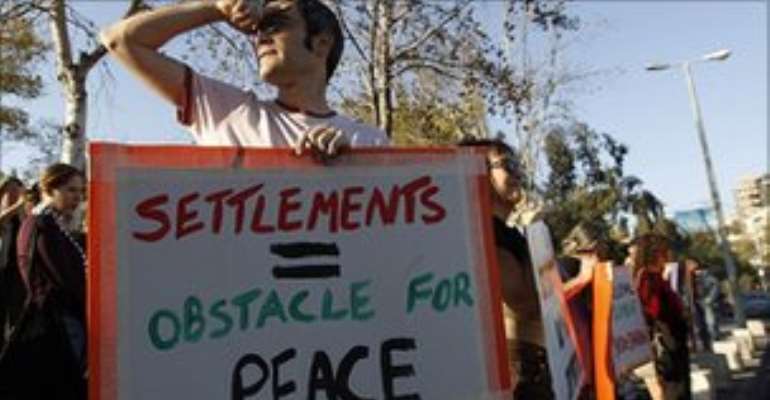ISRAEL PASSES BILL ON WITHDRAWAL FROM LAND

Talks with Palestinians have broken down over the issue of Jewish settlements in East Jerusalem
Israel's parliament has passed a bill setting stringent new conditions before any withdrawal from the Golan Heights or East Jerusalem.
The bill requires a two-thirds majority in the Knesset before any withdrawal could be approved.
Failing that, the proposal would be subject to a national referendum.
Analysts say the move could complicate peace efforts by making it more difficult for any Israeli government to make territorial withdrawals.
The bill – passed by a 65-33 majority – was backed of Israeli Prime Minister Benjamin Netanyahu who said it would prevent “irresponsible agreements”.
Likud Party MP Yariv Levin, who proposed the bill, said it was of “the utmost national importance for retaining the unity of the people”.
Unlike the occupied West Bank, which Israel has never formally annexed, the Golan Heights and East Jerusalem are considered by the Israeli government to be under its sovereignty.
The international community considers both the Golan and East Jerusalem to be occupied territory.
Syria requires the return of all of the Golan Heights as the primary condition for an peace treaty with Israel.
Palestinians aim to establish their capital in East Jerusalem.
'A mockery'
The Palestinian Authority in the West Bank condemned the move.
“With the passage of this bill, the Israeli leadership, yet again, is making a mockery of international law,” said Palestinian negotiator Saeb Erekat.
“Ending the occupation of our land is not and cannot be dependent on any sort of referendum.”
Palestinians want East Jerusalem as the capital of a future state.
There was no immediate comment from Syria, which lost the Golan Heights to Israel in the 1967 war.
Damascus wants the land back in return for peace but many Israelis regard the heights – which overlook northern Israel – as a strategic asset.
Israel has occupied the West Bank – including East Jerusalem – since 1967, settling nearly 500,000 Jews in more than 100 settlements. They are considered illegal under international law, although Israel disputes this.
